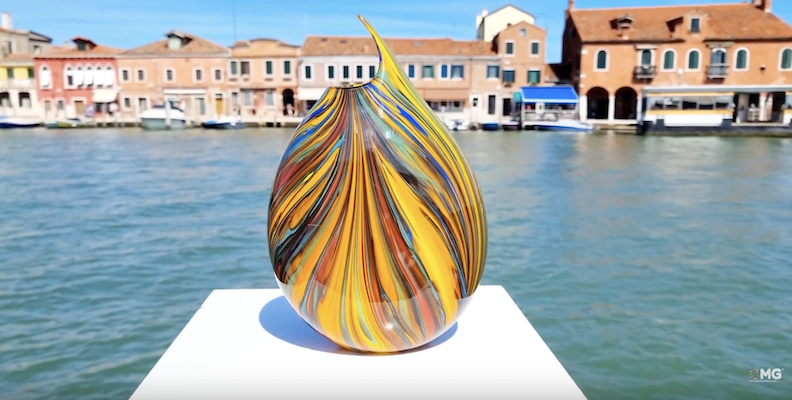
La storia della lavorazione del vetro a Murano/
The history of glass-making in Murano
L’arte della lavorazione del vetro a Murano, un’isola vicino a Venezia, Italia, risale al 1291 quando i vetrai veneziani furono trasferiti lì a causa del rischio d’incendio che i loro forni ponevano alla città principale. Il vetro di Murano ha rapidamente guadagnato fama per la sua chiarezza ineguagliabile, disegni intricati e colori ricchi, beneficiando di tecniche segrete tramandate di generazione in generazione. È diventato sinonimo di qualità e maestria, apprezzato in tutta Europa. Oggi, l’industria rimane vitale per l’economia di Murano, con numerose fabbriche e laboratori. Molte di queste strutture offrono visite guidate, permettendo ai visitatori di assistere all’ipnotizzante processo della lavorazione del vetro, un’esperienza che continua a sostenere la reputazione stimata di Murano.
The art of glass-making in Murano, an island near Venice, Italy, dates back to 1291 when Venetian glassmakers were relocated there due to the fire risk their furnaces posed to the main city. Murano glass quickly gained fame for its unparalleled clarity, intricate designs, and rich colors, benefiting from secretive techniques passed down through generations. It became synonymous with quality and craftsmanship, prized across Europe. Today, the industry remains vital to Murano’s economy, with numerous factories and workshops. Many of these establishments offer tours, allowing visitors to witness the mesmerizing process of glass-making, an experience that continues to uphold Murano’s esteemed reputation.
Let’s visit the OMG (Original Murano Glass) factory and store in Murano/ Venice

The Colors of Murano glass
amber: amber
arancione: orange
argento: silver
azzurro/ azzurra: light blue
beige: beige
bianco/ bianca: white
blu: blue
giallo/ gialla: yellow
griggio/ griggia: gray
marrone: brown
nero/ nera: black
oro: gold
rosa: pink
rosso/ rossa: red
rubino: ruby
turchese: turquoise
verde: green
viola: violet
| aranci(o)a | bianco(a) | blu | giallo(a) | grigio(a) | |||||
| marrone | nero(a) | rosa | rosso(a) | verde | |||||
| amber | beige | rubino | turchese | viola |
Punti grammaticali
- color adjectives follow the noun
- the color adjectives ending in ‘o‘ are used to describe masculine nouns
- color adjectives ending in ‘o’, when describing a plural masculine noun, change their ending to ‘i’ (e.g., i tavoli bianchi)
- color adjectives ending in ‘a’, when describing a plural feminine noun, change their ending to ‘e’ (e.g., le case bianche)
- the color adjectives ending in ‘a’ are used to describe feminine nouns
- the color adjectives ending in ‘e’ (e.g., arancione, beige, torchese, verde) are used to describe both masculine and feminine singular nouns. However, they change their endings when describing plural nouns (e.g.,i tavoli verde, le case verde)
- the colors ‘blu, rosa, viola‘ never change their ending regardless of the gender of the preceding noun
Vocabolario Visivo
 |
 |
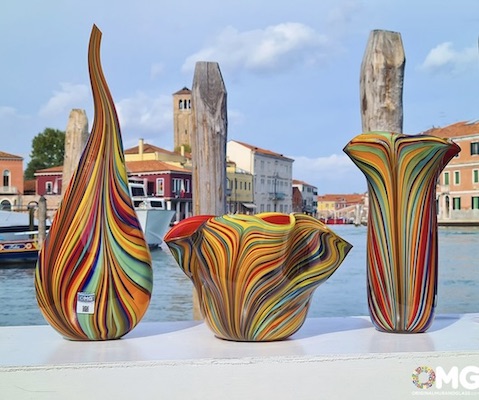 |
| Un vaso blu | Una caraffa rossa | Alcuni vasi multicolori |
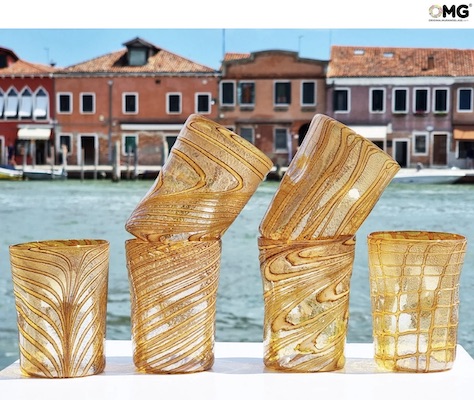 |
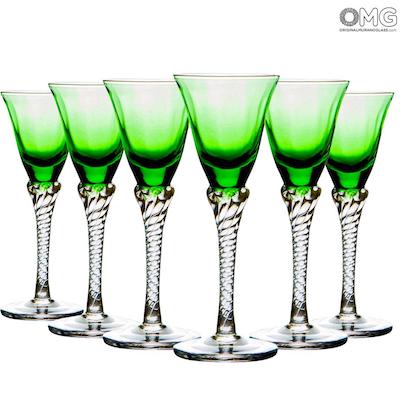 |
 |
| Set di 6 bicchieri amber | Alcuni bicchieri calice verde | Alcuni calici rubino |
 |
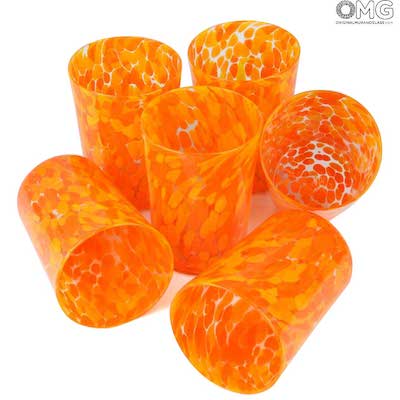 |
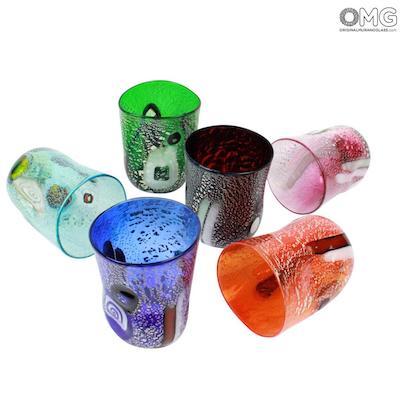 |
| Set di 6 bicchieri rosso passione | 6 bicchieri limoncello arancio | Set di 6 bicchieri blu, rosso e verde |
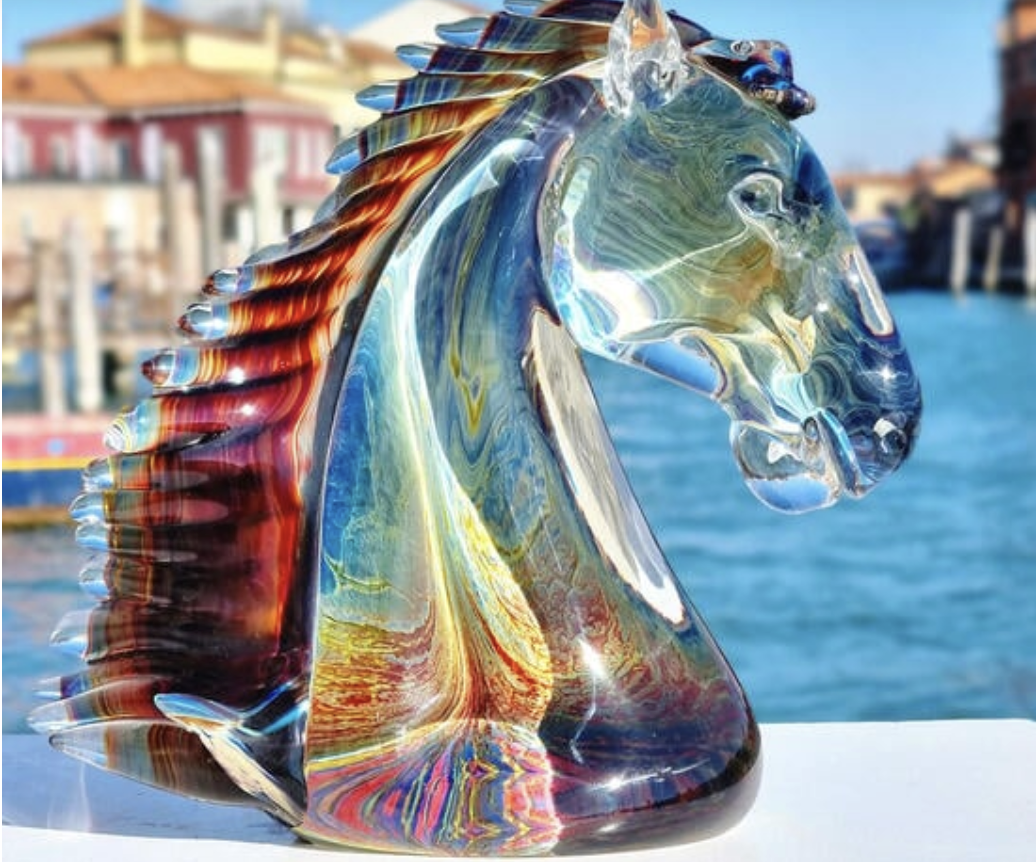 |
 |
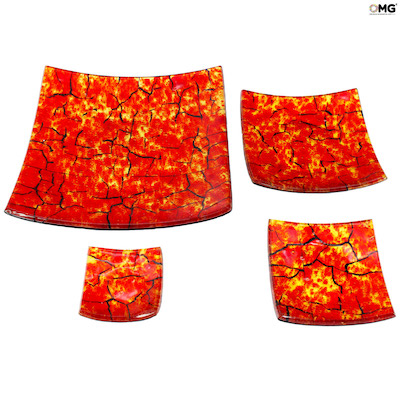 |
| Una figurina multicolori | Set di 2 bicchieri blu | Alcuni piatti rosso |
Risorce Internet/ Internet Resources
OMG (Original Murano Glass Mediterranean Collection)
OMG (Original Murano Glass Handmade)
OMG (Original Murano Glass handmade in Venice)
The history of Murano and its glass


